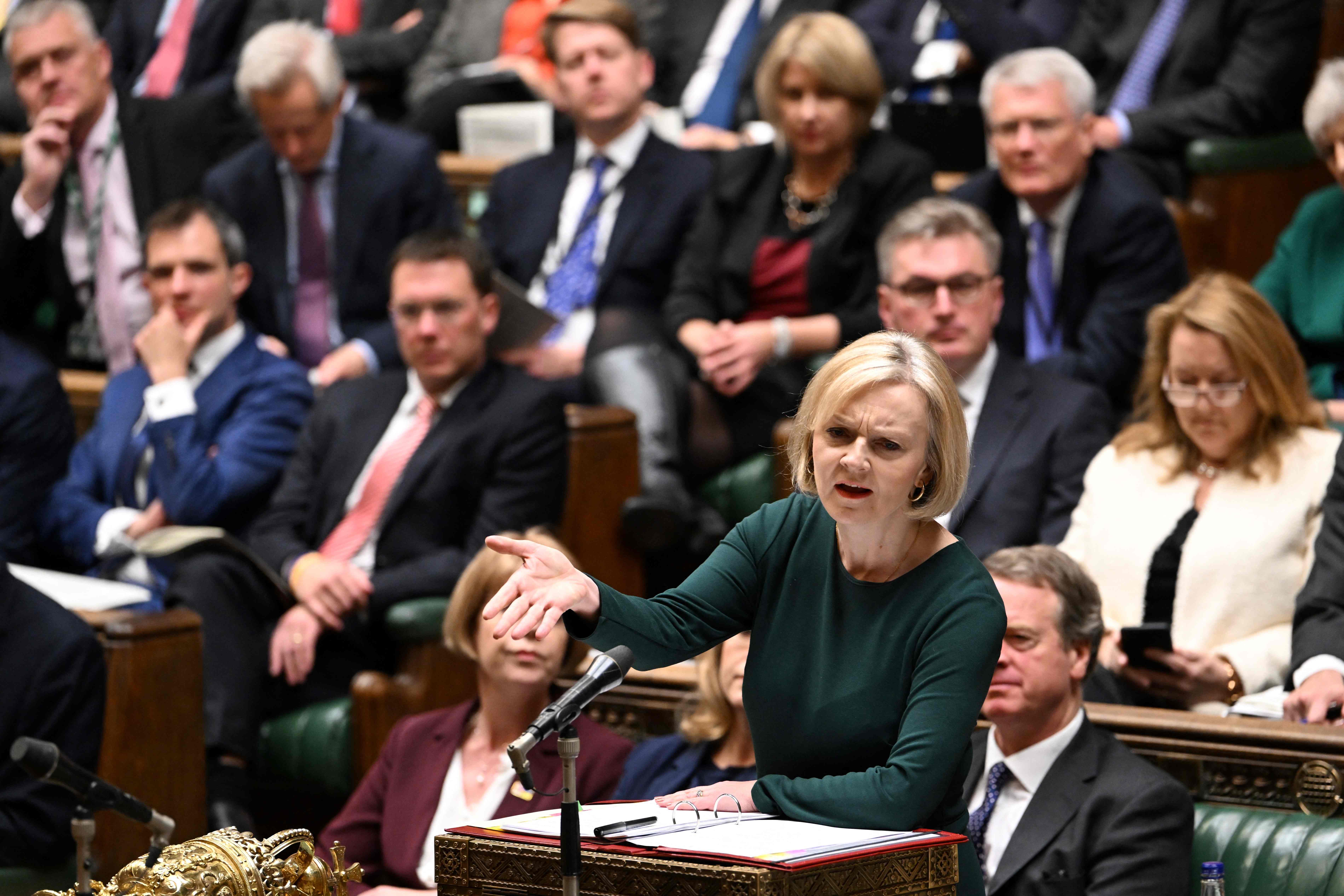A U-turn on tax cuts is coming, and everyone in parliament knows it
In the chamber, writes John Rentoul, Truss found herself undermined by her own worst enemy – herself


Keir Starmer finds the theatrical element of Prime Minister’s Questions frustrating. He is no good at it. He prefers to conduct the session as if it were a meeting at the Crown Prosecution Service, where he goes through the points he wants to sort out one by one, reading from a script.
When the prime minister responded by not answering the question, or accusing Labour of opposing the government’s plan to subsidise people’s gas and electricity bills, Starmer was confused and annoyed. He accused her of making “nonsense” attacks, and pressed ahead with his next question.
It was only after she gave a non-answer to that one that he pointed out that it was Labour that advocated freezing energy prices first, before the government adopted the policy.
Starmer didn’t “win” the exchanges, because Truss stood up straight and sounded as if she believed what she was saying. But Labour didn’t need a theatrical performance to take the prime minister’s case apart. Events in the markets were doing a good job of that from the outside, and in the chamber, Truss found herself undermined by her own worst enemy: herself.
It is worth quoting her answer to Daisy Cooper, the Liberal Democrat MP, in full: “I feel it would be wrong, at a time when we are trying to attract investment into our country at a time of global slowdown, to be raising taxes, because it will bring less revenue in. And the way we are going to get the money to fund our NHS, and the way we are going to get money to fund our schools, is by having a strong economy, with companies investing and creating jobs.”
As a statement of what is wrong with the new government’s policy, it can hardly be bettered. Raising taxes brings in less revenue, she said. The way to pay for public services is by magicking a “strong economy” from the ashes of the government’s fiscal credibility, after it has given up £43bn a year of tax revenue.
Truss sounded like a liberal market think tanker from another decade, expounding ideas that are merely incredible in good economic times, but which are dangerous in times of crisis.
Many of those on the benches behind could see that this wasn’t going to put off the inevitable U-turn for long, which may also explain why the government side of the chamber was less full than usual. Tory MPs have enough of a survival instinct to prop up the leader until it is time for her to go, so Truss won loud cheers when she came in, and insincere cries of “More, more!” when she had finished not answering Starmer’s six questions.
But Labour had the tactical skill to have Rachel Reeves, the shadow chancellor, table an urgent question immediately after PMQs, asking Kwasi Kwarteng for a statement on the overnight turmoil in the markets. She had asked him pointless non-questions only yesterday, and he was in Washington today, but her intervention forced his deputy, Chris Philp – a minister who leaps to the despatch box to answer questions faster than any other – to defend the government against backbench Tories who held back from asking hostile questions of the prime minister herself.
Mel Stride, the deputy leader of the Rishi Sunak Party, which holds the balance of power in the hung parliament, told Philp that his boss has a problem in reassuring the markets: “Given the huge challenges, there are many, myself included, who believe it is quite possible that he will have to come forward with a further rowing back on the tax announcements that he made on 23 September.”
To keep up to speed with all the latest opinions and comment, sign up to our free weekly Voices Dispatches newsletter by clicking here
Further pressure for a U-turn on tax cuts came from Robert Largan, a Conservative MP who backed Tom Tugendhat in the leadership election, who asked if, “given that the prime minister has ruled out public spending cuts, the government is considering deferring any of the tax measures”.
Philp said no. But he also said, in reply to Angela Eagle, who has been a Labour Treasury minister herself, that “we do not plan real-term cuts” in public spending. In which case, the government remains trapped, and the markets will continue to take fright.
Truss and Philp both pointed out with glee that Labour hadn’t opposed the cut in national insurance, which went through the Commons last night, but a U-turn could still be coming on the cut in the basic rate of income tax and the cancellation of next year’s rise in corporation tax.
Everyone knows that Truss’s policy is unsustainable, but Labour don’t want to argue for tax rises: Starmer and Reeves are happy to let Mel Stride and the markets make the case for them.






Join our commenting forum
Join thought-provoking conversations, follow other Independent readers and see their replies
Comments